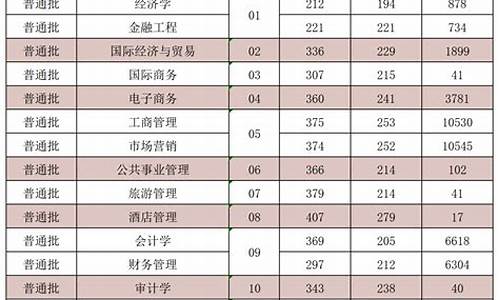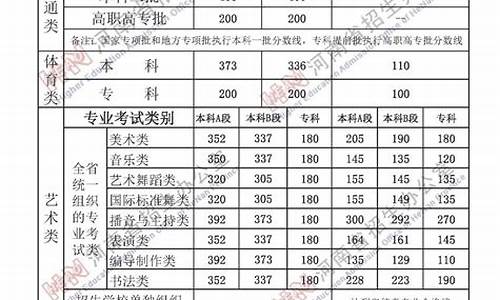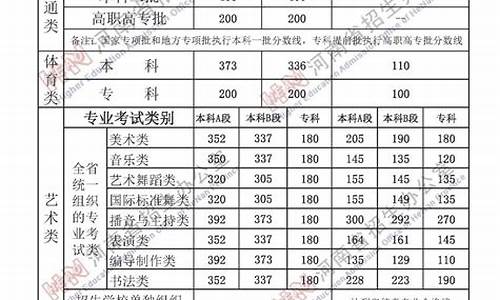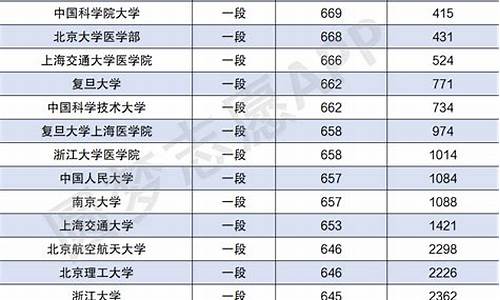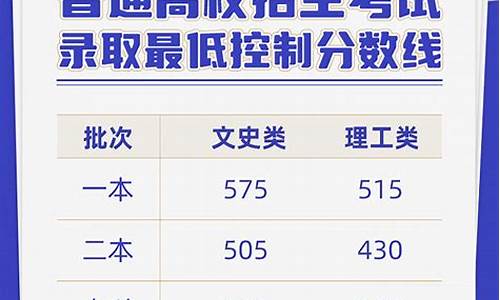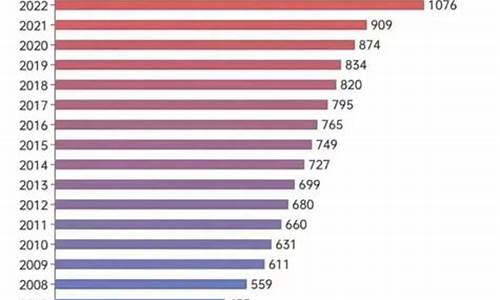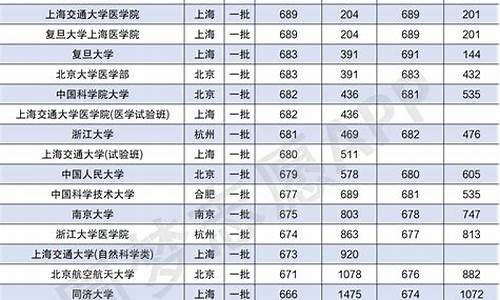高考的语法点,高考语法点有哪些
1.高考英语必备的语法知识点
2.高考英语语法易错点查漏补缺
3.高中英语语法知识点整理总结
4.人教版高中英语语法知识点
5.怎么学英语语法,,,高考使用
6.高考英语语法:高中英语语法-插入语六大用法小结
7.高考英语语法复习有哪些要点?
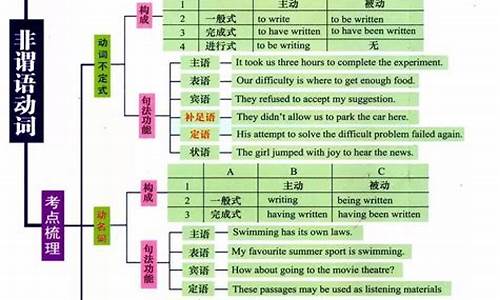
语法无非就考时态,语态,从句,非谓语动词。
一,时态方面,要区分什么时候用过去时,什么时候用完成时,还有过去完成时,这三个的用法往往都会混淆,所以经常考这个。辨别什么时候用这三个的哪一个,要看句子里面的时间标志词,画出句子中所有动作的时间轴,就很好做了。
二,语态方面,什么时候用被动语态,判断这个需要找动作发出者,而不是光看句子主语,要用自己逻辑判断,别被句子的主语迷惑。虚拟语态虽然有学,但不是重点考核对象,很少出。
三,从句。从句太多种多样了,高中的从句,定语从句是重点。一般考引导定语从句的关系代词或关系副词,还有定语里面的介词,是放在前面还是后面,这个也是常考的。
四,非谓语动词
1 现在分词的用法,做状语,做定语,要区分(注意,做主语那些动词ing叫动名词,不属于非谓语动词范畴)
2 过去分词用法,同上。
3 动词不定式,带to的和不带to的,动词不定式里加入时态和语态变化,也要注意,这是常考的点。
最后,关于做语法题,有几点很好用的提醒,以前我们老师常说。这里分享一下。
情态动词后面接动词“原形”
to不定式后面接动词“原形”
be动词后面接动词ing
很弱智吧,但是就算是高手,也会犯这些低级错误,往往就是顾着想其他方向而忽略这些最基本的东西。这也说明了一个问题,做语法题一定要注意各种细节。
以上。
高考英语必备的语法知识点
英语高考的时候,不管是单词、 短语 、句型还是语法,都会被考察到,所以考生们一定要全面复习好这些知识。下面是我整理分享的高考英语语法填空必背知识,欢迎阅读与借鉴,希望对你们有帮助!
高考英语语法填空必背知识
一、部分过去式和过去分词不规则变化的动词
1. broadcast (broadcast, broadcast) 广播
2. flee (fled, fled) 逃跑
3. forbid (forbade, forbidden) 禁止
4. forgive (forgave, forgiven) 原谅
5. freeze (froze, frozen) 结冰
6. hang (作“绞死”讲,是规则的;作“悬挂”讲,其过去式过去分词都是hung)
7. lie (作“说谎”讲时,是规则的;作“位于”讲时,其过去式是lay,过去分词是lain)
8. seek (sought, sought) 寻求
9. shake (shook, shaken) 发抖
10. sing (sang, sung) 唱歌
11. sink (sank, sunk/sunken) 下沉
12. spread (spread, spread) 传播
13. swim (swam, swum) 游泳
14. tear (tore, torn) 撕碎
15. weave (wove, woven) 编织
二、以下动词加-ed或-ing要双写最后一个字母
双写规则口诀:重读闭音节有特点,词尾是两“辅”夹一“元”。
若把-ing,-er(-est),-ed添,辅音字母要双写全。
注:两“辅”夹一“元”:指单词最后三个字母是“辅音字母+元音字母+辅音字母”(最后一个字母如是w,x,y除外),其中元音字母所发的音是该单词的重音。即“以一个辅音字母结尾的重读闭音节词”。
1. admit (admitted, admitting) 承认
2. permit (permitted, permitting)允许
3. regret (regretted, regretting) 后悔
4. forget (forgotten, forgetting ) 忘记 unforgettable
5. control (controlled, controlling) 控制
6. occur (occurred, occurring) 出现
7. prefer (preferred, preferring) 宁愿
8. refer (referred, referring) 提到
9. equip (equipped, equipping) 装备
注意:quarrel, signal, travel中的l可双写(英国英语)也可不双写(美国英语) 另外注意:destroy (destroyed) employ (employed)
shyer; shyest
三、容易拼写错的数字
1. eighth第八 2. ninth第九 3. forty四十 4. twelfth第十二
5. twentieth第二十
四、注意形容词变名词时的拼写变化
1. long—length 长度— lengthen加长
2. wide—width 宽度—widen
3. high—height 高度—heighten
4. strong—strength力量 —strengthen
5.deep—depth—deepen
6. short—shortness—shorten
7.broad—broadness—broaden
8.large—largeness—enlarge
五、以-ic结尾的动词,应先把-ic变为-ick,再加ing或ed
1. picnic (picnicked, picnicking) 野餐
2.panic (panicked, panicked) a./ v.惊慌,恐慌,惶恐不安
六、个别名词的'复数拼写
1. German (Germans) 德国人
2. gulf (gulfs) 海湾
3. handkerchief (handkerchiefs) 手帕
4. hero (英雄),potato (土豆),tomato (西红柿) 等有生命的以-o结尾的名词变复数时要加-es。
5. roof (roofs) 房顶
6. stomach 胃 (其复数是stomachs而不是加es)
七、常用复数形式
1. headphones (耳机), trousers (裤子),sunglasses (太阳镜), scissors (剪刀), compasses (圆规)
2. noodles, vegetables, snacks小吃, 快餐,
3. make friends with 与...交朋友,in high/low spirits (情绪高涨/低落), have sports (进行体育活动)。
4. congratulations (祝贺)。
5. celebrations (庆祝),
八、注意动词变名词时的拼写变化
1. succeed—success成功
2. pronounce—pronunciation 发音
3. explain—explanation解释
4. decide—decision 决定
5. enter—entrance进入
6. permit—permission 允许
7. refuse—refusal 拒绝
8. consider—consideration 考虑
9. discover—discovery 发现
10. bury—burial 埋葬
11. conclude—conclusion 得出结论
12. arrive—arrival 到达
13. weigh—weight 重量
14.press--pressure压力
九、注意去不去e
possible—possibly 可能的 argue—argument judge—judgment
value—valuable courage—courageous
高考英语语法填空必背知识相关 文章 :
★ 高考英语语法填空进行时态知识点与必记的单词
★ 高考英语语法填空考点总结
★ 英语高考语法填空《英语语法手册》知识点
★ 高考英语语法填空一般时态知识点与训练题
★ 高考英语语法填空动词知识点与语法填空题与答案
★ 高考英语语法填空副词知识点与练习题
★ 高考英语语法填空解题策略
★ 英语高考语法填空规律总结与练习题
★ 高考英语语法填空技巧整理
★ 高考英语语法填空比较级知识点与强化训练题
高考英语语法易错点查漏补缺
高考是最全面系统的一次考试,英语科目的高考考察就是我们学生平时学过的知识和掌握的语法知识。下面是我为大家整理的高考英语必备的语法与知识点,希望对大家有用!
高考英语语法知识点
一般过去时
①一般过去时的基本用法:表示过去的事情、动作或状态常与表示过去具体的时间状语连用(或有上下文语境暗示);用于表达过去的习惯;表示说话人原来没有料到、想到或希望的事通常用过去式。如:
I met her in the street yesterday.
I once saw the famous star here.
They never drank wine.
I thought the film would be interesting,but it isn’t.
②如果从句中有一个过去的时间状语,尽管从句中的动作先于主句发生,但从句中的谓语动词连用过去式。如:
③表示两个紧接着发生的动作,常由以下词语连接,用一般过去时。如:but, and, when, as soon as, immediately, the moment, the minute。
The moment she came in, she told me what had happened to her.
He bought a watch but lost it.
④常用一般过去时的句型:
Why didn’t you / I think of that?
I didn’t notice it.
I forgot to tell you I had been there with my brother before.
I didn’t recognize him.
高考英语知识要点
1.表示“大量、许多”
可数:number/many/dozen/a great number 不可数:a great deal/amount/much 都可以:plenty of/lot/quantity/mass
2.可以修饰形容词比较级:far/even/any/much/rather/a bit/a lot
3.lie躺-lay-lain-lying 撒谎-lied-lied-lying
Lay下蛋-laid-laid-laying
4.can表示能力,be able to表示经过努力,有时态变化
5.receive强调客观接收,accept强调主观接受
6.on account of因为,由于;account for说明原因解释
7.accuse sb of指控某人,sue指控
8.add to增加扩大,add up加起来,add up to总共总计
9.afford负担得起,抽得出时间
10.after以过去为起点,用于过去时态,in以将来为起点,用于将来时态
11.ago与过去时连用,before与过去完成时连用
12.in all总计全部,all in all总的说来,at all一点,not at all一点也不
13.almost后接no,none,nothing,never,但不能用not修饰,nearly可以用not修饰 more than和too等词前面用almost,不用nearly
14.always与not连用表示未必、有时,例如Crows are not always black.乌鸦未必是黑 色的。
15.be amused at/by/with以?为乐
16.announce指个人郑重其事的宣布,declare指宣布战争、和平、意见、中立等 Declare后不加不定式
17.表示渴望:long for/be anxious for/in anxiety of/have an appetite for/be eager to do/hunger for/sick for;为某事担忧be anxious about
高考英语知识点
(一)段首句
1. 关于?人们有不同的观点。一些人认为?
There are different opinions among people as to ____ .Some people suggest that ____.
2. 俗话说(常言道)?,它是我们前辈的经历,但是,即使在今天,它在许多场合仍然适用。
There is an old saying______. It"s the experience of our forefathers,however,it is correct in many cases even today.
3. 现在,?,它们给我们的日常生活带来了许多危害。首先,?;其次,?。更为糟糕的是?。
Today, ____, which have brought a lot of harms in our daily life. First, ____ Second,____. What makes things worse is that______.
4. 现在,?很普遍,许多人喜欢?,因为?,另外(而且)?。
Nowadays,it is common to ______. Many people like ______ because ______. Besides,______.
5. 任何事物都是有两面性,?也不例外。它既有有利的一面,也有不利的一面。
Everything has two sides and ______ is not an exception,it has both advantages and disadvantages.
6. 关于?人们的观点各不相同,一些人认为(说)?,在他们看来,?
People’s opinions about ______ vary from person to person. Some people say that ______.To them,_____.
7. 人类正面临着一个严重的问题?,这个问题变得越来越严重。
Man is now facing a big problem ______ which is becoming more and more serious.
高考英语必备的语法与知识点相关 文章 :
1. 高考英语语法与知识点
2. 高考英语语法与知识点总结
3. 高考英语语法知识点总结
4. 高考英语定语从句语法知识点与学习方法
5. 高中必备英语知识点归纳
6. 高考英语必备的知识
7. 高中英语语法知识点整理总结
8. 2020高考英语语法知识点
9. 高考英语知识点考点归纳
10. 高三英语语法知识点总结
高中英语语法知识点整理总结
高考考前语法填空和短文改错代词易错点查漏补缺
代词
1、作表语常用宾格,在独词句中用宾格。
a.—Who is knocking at the door?——It’s me
b. He is a student in this school. And me, too.
2、it 指无生命的事物、婴儿、以及who、someone等不名身份的人。
eg: a. —Who is outside? —It is me
b. Someone has entered the house. It must be a thief
c. The baby is very lowly. It was born half a year ago.
3、反身代词可用作①宾语②表语(表示“健康”的含义)③同位语(作主语同位语,可以放在主语后面,或后置; 如果作宾语同位语,则放在宾语后面)
eg: a. Mr Black can’t express himself in Chinese. b. I am not quite myself today.
c. She herself opened the door. She opened the door herself.
d. You’d better ask Mr Smith himself about it.
4、指示代词this, that用于电话用语中。
—Who’s that (speaking)?
—It/This is Tom (speaking)?
5、this/that 修饰adj/adv. 表示“这么”“那么”的含义,相当于so 。
a. Oh, the girl is not that foolish. b. I can only promise you this much.
c. We didn’t expect that the weather in Tongren was that hot.
6、it、that、those、one、the ones的指代区别。
1)it指上文提到的同一事物或整句话的内容。
a. “Do you want the watch?”“Yes , I want it.”
b. He warned his son not to play computer games again, but it didn’t help.
2)that常用来指代同名异物的不可数名词
a. The population of China is much larger than that of any other country in the world.
b. The weather in Kaili is much better than that in shanghai.
3)those或the ones 用来指代上文提到的复数名词。
a. Watches made in China are just as good as those/ the ones made in Switzerland.
b. The books are better than those you bought yesterday.
4) one指代同名异物的某个单数名词,如果特指就用the one.
a. I want to buy a Mp3. Do you need one?
b. Here are enough apples . Each of you can get one.
c. I don’t like this dictionary. I prefer the one on the shelf.
7、both、either、neither的用法
a. Both of them are right (主语)
Both the brothers/ Both of the brothers are at college.(定语)
b. Neither of the answers is / are correct.(主语)
Neither seat is taken .(定语)
c. You can take either of the dictionaries.(宾语)
Flowers are planted on either side of the street.(定语)
8、none、all 的用法
a. All has been done.(作主语,表示“所有事”谓动用单数)
All are present . (作主语,表示“所有人”谓动用复数)
b. None of the girls in our class like/likes football.
注意:在回答what/who 问句时,用nothing/nobody;而在回答how many/How much……问句时用none.
Who is in the classroom? Nobody. What is in your hand? Nothing.
How much money do you have? None.
9、every、each的使用
1)every只能修饰名词,而each既可修饰名词,也可作名词使用。
eg: every day、each classroom、each of the student
2)在单独作主语、同位语、宾语时只用each.
a. Here are enough glasses. Each of you can get one.
b. We each should listen to the teachers carefully.
3)every能表达“每隔”的含义,而each则不能。
every three days 每3天、每隔2天 every few years每隔几年
every other day /week/line每隔1天/1周/1行
4)every与one连用,可用of修饰( 要分开写)。
every one of us 我们中的每一人 each of us我们中的每一人
every one of the books 这些书中的每1本
each of the books这些书中的每1本
10、some与any
1)表示“一些”含义时,some用于肯定句中,any用于否定、疑问、条件句中,都可以修饰可数名词或不可数名词。
a. I have some questions to ask you.
b. Do you have any trouble in learning English? If any, do ask me for help.
注意:1)some表示“一些”时,可用于“征求意见”“提出建议”的疑问句中。
a.—Would you like to have some ice cream?
—No.
—How about some water?
—Yes, please.
2)some后接单数可数名词时表示“某一”的含义。相当于“a certain.”
some day 将来某一天 some kind of animals某一种动物
3)some 可以和数词连用,表示“大约”的含义。
The story took place some forty years ago.
4)any如果表示“任何”含义时,可以用于肯定句中。
Here are three novels. You may read any.
11、one……the other、another、other+复数名词、others、the other+复数名词、the others
1)当前提只有两个时,表达“一个,另一个”用one……the other,此时the other作名词用。
I have bought two books. One is a dictionary, the other is a story book.
2)当前提有3个或以上时,表达“另一个”用another或“a(n)+序数词( 序数词的选择要根据语境来)”表示。
Please show me another book.
I have stayed in Kaili for a week, but I still want to stay here for a second week.
注意:如果是“一段时间”或“一笔钱”时,可以用another。此时虽然是复数的形式,但它是单数含义。
a. We need another three days to finish the work.可以替换为:three more days three other days
b. Sorry, your money is not enough. You need to pay another 10 dollars
10 more dollars
10 other dollars
3)other(adj)+复数名词或others(n)表示除去一部分外剩余的某一部分,前面常有特征词some.
a. Some people are against you, but others/other people may agree with you.
b. I don’t like this shirt. Have you got any others?
4)the other(adj)+复数名词或the others(n)表示除去一部分外剩余的全部,一般都要有一定的范围。
There are 70 students in the class. Some are from the USA and the others/ the other students / the rest are from China.
12、little、a little、few、a few的使用
1)little“几乎没有”修饰不可数名词 There is little water in the desert
2)few“几乎没有”修饰可数名词的复数形式。Few people like him.
3)a little“一点,一些”,修饰不可数名词。 There is still a little soup in the bowl.
4)a few“一些,几个”修饰可数名词的复数形式,相当于some、several, a couple of
I bought a few books yesterday
13、many与 much的使用
1)much+不可数名词 much water/ information/ pleasure…etc
2)many+复数名词 = a good /great many+复数名词作主语,谓语动词用复数形式。
然而: many a(n)+单数可数名词,如many a student, 作主语,谓动用第三单形式。
14、疑问代词
What、which、who、whom、whose、how many/much、how soon、how often、how long、etc、
(1)、在句中作主语、宾语(含介词宾语)、表语且指sth.用what, 另外:表示“是。。。什么样子”也用what.
a. —What’s your name?—My name is Peter. b. —What is on your desk?
c. What’s the weather like today?
d. What does your father look like?
e. My hometown is not what it used to be 10 years ago.
(2)、在句中指人且作主语,用who;如果指人作宾语,可以用who/whom
a. Who’s in charge of your class?
b. Who/Whom did you meet yesterday?
(3)、指人且在句中作定语,用whose。注意相应的名词要紧跟whose。
a. Whose father is a teacher?
b. Whose bike did you lose yesterday?
(4)、当表示“哪一个/ 哪一些”含义时用which,相应的名词也要紧随其后
a. Which dictionary do you like?
b. Which students will be chosen to be volunteers?
(5)、提问数目时用how many(much),可数名词用how many,不可数名词用how much。注意相应的名词也要紧随其后,如果问的是“钱”或“某种程度”时,how much后常不接名词。
a. How many people are there in your class?
b. How much vegetable did you buy this morning?
c. How much did you spend on the house?
d. How much do you like the dictionary?
(6)、在将来时中表示在一段时间后“用介词in+时间”, 含义为:....之后。提问则用how soon(多久以后).
The road will be completed in two years.
How soon will the road be completed?
(7)、how often用来提问频率。
He went back home twice a month last year.
How often did he go home last year?
(8)、how long 用来提问“for+一段时间”通常指(1)到目前为止,且在现在完成时中。(2) 将要做某事长达一段时间。
They have been married for five years.→ How long have they been married?
I will stay in my college for 4 years. → How long will you stay in your college?
15、全部否定与部分否定
1)both/every/all与not连用表示部分否定。
Not every student is from the UK=Every student is not from the UK.
Both of them are not from Guiyang.= Not both of them are from Guiyang.
Not all of us study hard.= All of us don’t study hard.
2)either……not、any……not、neither、none、nobody、nothing、each……not都表示全部否定。
a. Either of the two brothers is not a student.=Neither of the two brothers is a student.
b. Any of them doesn’t like to dance. None of them likes/like to dance.
c. Nobody is absent.
d. Nothing does good to you. e. Each of the students doesn’t want to go with you.
人教版高中英语语法知识点
高中英语知识点有哪些?应该怎么学习高中英语?有很多的同学是非常想知道,高中英语语法知识点有哪些,我整理了相关信息,希望会对大家有所帮助!
↓↓↓点击获取更多"高中英语知识点"↓↓↓
★ 高一英语必修一语法知识 ★
★ 高考英语作文万能句子 ★
★? 高三英语复习计划范文 ? ★
★ 英语作文热点话题及范文 ★
高中英语语法重要知识点 :不定冠词
不定冠词a,an与one同源,表示微弱的一的概念,但并不强调数目,用来表示不确定的人或事物。
A用在辅音前,而不是辅音字母前;an用在元音前,而不是元音字母前。
a university in Asia
1.表示同类中的任何一个
A cat has nine lives.
2.表示泛指的某人、某物
I know a John Lennon,but not the famous one.
3.表示数量的
He has a daughter.
4. 表示单位数量的每一
I earn 10 dollars an hour.
5.表示相同的
The two birds are of a color.
6. 用于集体名词前
He grows up in a large family.
7. 在某种情况下可用于抽象名词和物质名词前
China has a long history.
高中英语语法知识点整理 总结 : 定冠词的用法
1.表示特定的人或物
2.表示地球、宇宙中独一无二的事物
主要指各种天体及世界上比较有影响的物体。The sun,the moon,the earth
3.表示地点、方向、时间、方式等 at the corner 在拐角处
1) 在表示季节的名词前常不用冠词。In spring 在春天
2) 具体某年的某个季节,需用冠词。In the summer of the year2008
3)用于序数词或形容词的最高级前 the first the second
4)用于形容词前使其名词化 the rich the poor
5)用于复数姓氏前,表示―夫妇‖或全家 The Smiths
6)用于乐器名词前 Play the piano
7)用于by+the+计量单位名词 By the pound
1. 用于复数名词前
复数名词泛指某类人或物时,其前通常用零冠词。Students should obey the school rules. 学生应该遵守校规。复数名词若需特指,则要加定冠词。The students are too lazy. 这些学生太懒。
2. 用于不可数名词前
不可数名词表示泛指时,其前通常用零冠词。如:Bread is made from flour. 面包是用面粉做的。
Wood is a poor conductor of sound. 木头是声音的不良导体。不可数名词若需特指,则要加定冠词。
He sawed the wood into three pieces. 他把木头锯成三块。
3.用于专有名词前
在通常情况下,专有名词前要用零冠词。如:
Mr Smith is our English teaches us English. 史密斯先生教我们英语。在特殊情况下,若专有名词需要特指,也可加定冠词。如:The Smith you‘re looking for no longer lives here.
4. 用于抽象化的可数名词前
有些可数名词抽象化后表示表示的活动,其前通常零冠词。Jim has gone to bed. 吉姆已上床睡觉了。
She goes to church every Sunday. 她每周星期天都去做礼拜。
这类主要涉及bed, church, class, college, school, university, work, hospital, prison, market, sea, town等。另外,这类名词前用不用冠词有时与英美英语的表达习惯有关。如:―住院‖在英国英语中通常说成 in hospital,而在美国英语中则通常说成in the hospital;类似的还有go to university (英)上大学 / go to the university (美)上大学;at table (英)在吃饭 / at the table (美)在吃饭。
5. 用于职务及头衔前
当表示职务及头衔的名词用作表语、补足语及同位语时,其前通常用零冠词。如:Wilson became President of the U. S. A. 威尔逊当了美国总统。He will be made captain of the football team. 他将被选为 足球 队队长。
6. 在表示学科、语言、三餐、月份、季节、节假日、星期等名词前,通常用零冠词。
We are all interested in physics. 我们大家都对物理感兴趣。
7. 用于某些固定结构中
go to sea 去当水手 at home 在家 at night 在晚上 at least 至少
at most 至多 at first 首先 at last 最后 in bed 在床上
on foot 步行 face to face 面对面
高中英语语法知识点整理总结:代词
高考中对代词的考查主要集中在人称代词(主要是其中的it)、关系代词、指示代词和不定代词上。
一、 it的用法 ?
1.作人称代词
John likes playing Ping pong./ He always does it in the afternoon.(指代上下文提到的事物); /It's time we went home. / How far is it from here to your home ? / It is getting warmer and warmer./ It's very quiet at the moment.(可指时间、天气、环境等) 2.引导词
A.作形式主语,代替由不定式、动名词或从句表示的真正主语。
It's important for us to learn a second language./ It's no use talking to him./ It's known to all that the earth goes round the sun.
B.作形式宾语,代替由不定式、动名词或从句表示的真正宾语。
We feel it our duty to help others./ He made it clear that he would leave the city. C.强调结构:It is (was) +被强调部分+that (或who)…
注意:在强调结构中,如被强调部分为时间状语或地点状语,其后的连接词也绝不能为when 或where,而应用that 。在复习中,一定要注意句式的不同。It was in Shanghai that I bought the guitar.(that引起强调句) It was Shanghai where I bought the guitar.(where引起定从)
It was twelve o'clock when we arrived there.(when引起时间状语从句) It was at twelve o'clock that we arrived there.(that 引起强调句)
3. it,one,that 的区别:作为代词,这三个词的对比使用是高考的 热点 之一。—Why don't we take a little break? —Didn't we just have __________? A.it B.that C.one D.this
The Parkers bought a new house but _________will need a lot of work before they can move in. A.they B.it C.one D.which
one 用以指代同类事物中的任一,that 特指性强,指代可数与不可数词,而it指代上文提过的同一事物。
二、 关系代词
who,whose,whom,which,that,as
1)which可以引导非限定性定语从句,代表前面整个 句子 的内容,并且在从句中做主语 2)that的用法 1)不用that的情况
a) 在引导非限定性定语从句时。b) 介词后不能用。
We depend on the land from which we get our food. We depend on the land that/which we get our food from.
2) 只能用that作为定语从句的关系代词的情况 a) 在there be 句型中,只用that,不用which。
b) 在不定代词,如:anything, nothing, the one, all, much, few, any, little等作先行词时,只用that,不用which。
c) 先行词有the only, the very修饰时,只用that。d) 先行词为序数词、数词、形容词最高级时,只用that。. e) 先行词既有人,又有物时。
举例:
All that is needed is a supply of oil. 所需的只是供油问题。
Finally, the thief handed everything that he had stolen to the police. 那贼最终把偷的全部东西交给了警察。
3) as的用法
AS作关系代词,用来引导定语从句:限制性定语从句和限非制性定语从句 一、AS引导限制性定语从句
AS引导限制性定语从句时,通常和such, the same, as(so)等连用,构成such...as/such as, the same...as/the same as, as(so)...as等结构,在从句中可作主语,宾语和表语。
1.such...as/such as意为―...的那种...,像那样的‖,such...as/such as引导限制性定语从句时,既可指人,也可指物。such用于名词之前时,具有形容词性质;such单独使用(即后面不接名词)时,具有代词性质。
Don‘t trust such men as praise you to your face.(as作主语) 不要相信那种当面吹捧你的人。
You should read only such books as you can understand without much difficulty.(as作宾语) 你应当只读那些你读起来不太难懂的书。
Associate with such as will improve your manners.(as作主语) 要和能改善你的言行的那种人结交。
2.the same...as/the same as意为―与...同样的‖,和such一样,the same既有形容词作用,又有代词性质。
We have arrived at the same conclusion as they have.(as作宾语) 我们已得出和他们同样的结论。
比较:the same...as和the same...that不同,前者是―同那一个相似‖,后者是―正是那一个‖。如:
This is the same watch as I lost. 这同我丢的那块表一样。
This is the same watch that I lost? 这正是我丢的那块表。
3.as(so)...as意为―和...一样‖,后接由many, much等修饰的名词或由形容词修饰的单数名词,注意其语序为as(so)+adj.+a+n+as,如:It‘s as pleasant a film as I have ever seen. 这是一部和我以往看的同样好的**。
As many soldiers as marched were killed. 很多游行的战士都被杀了。
注意:such ...as与such...that ,so...as与 so...that的区别:that是连词,引出结果状语从句,在从句部分不作成分;as是关系代词,引出定语从句,在从句中可作主语,宾语和表语。比较:He is such a nice boy that everyone likes him. He is such a nice boy as everyone likes.
It is so difficult a problem that nobody can work it out. It is so difficult a problem as nobody can workout.
三、AS引导非限制性定语从句
AS引导非限制性定语从句时,通常指的不是主句中的某一个名词(先行词),而是指整个主句表达的内容,对主句所作的陈述进行附加说明,意为―这...,如...或正如...‖。这种从句可位于主句之前,之中或之后。
As we all know, Taiwan belongs to China. Taiwan, as we all know, belongs to China. Taiwan belongs to China, as we all know. 注意下面的习惯用法:
as is well discussed 正如已讨论过的
as is often said 正如通常所说 as is often the case 通常就是这样 as has been pointed 正如所指出的那样 as has been said before 如上所述 as often happens 如同经常所发生的那样 as might be expected正如所料 as is well known to all众所周知
在多数情况下,从句中的谓语助动词可以省略 as explained before 如前面所解释的 as mentioned above 如前面所提到的 as shown in the figure 如图所示 as seen from the table 从表中可以看出 as already discussed 正如已讨论过的
四、不定代词
一) . some 与 any 的用法
1. some 用于肯定句以及表示建议或期待得到肯定回答的问句。修饰单数名词时,意为某个。如:
I have some questions about the assignment. (希望得到肯定答复)。
2. any 用于否定句和疑问句时,表示一些。用于肯定句时,只和单数名词或不可数名词连用,表示任何。如:
The medicine is on sale every where. You can get it at any chemist?s. 二) . each 与 every 的用法
1. each 强调个体,表示两个或两个以上中的每一个,在句中可充当主语、宾语、定语和同位语。如:
There are trees and flowers at each side of the road.
2. every 强调整体,表示三者或三者以上中的每一个,只能作定语,不能说 every of them ,要说 every one of them .
Every student in our class works hard. 三 . no one 与 none 的用法
1. no one 意为没有人,只能指人,不能指物,不可与介词 of 连用,谓语动词用单数形式,回答 who 引导的问句。如:Who is in the classroom? No one.
2. none 既可指人,也可指物,强调数量,意为一点也不,一个也不;谓语动词既可用单数也可用复数;常与 of 连用,通常指三者以上的人或物中没有一个,回答 how much 和 how many 引导的问句。如:
They were all tired, but none of them would stop to have a rest. 四 . other, another, others, any other, the other 的用法
1. other 表示泛指,意为另外的、 其它 的。常与复数名词或不可数名词连用。如果其前有 the, this, some, any, each, every, no, one 以及形容词性物主代词时,其后就可接单数名词。如:I have no other place to go.
2. another 常用于指三者或三者以上中的另外一个,泛指单数。可单独使用,也可后接名词。如果其后接复数名词,则表示又、再、还。如:This cap is too small for me. Show me another (one)。We need another three assistants in our shop.
3. others :它是 other 的复数形式,表示泛指,意为别的人或物,但不指全部。特指时在其前加定冠词;前面可加任何限定词以及数量词。如:He has more concern for others than for himself.
4. any other 表示一个之外的其他任何一个,而不是两个之中的另一个。如:China is larger than any other country in Asia.
5. the other :表示两者中的另外一个。可单独使用,也可接单数名词。如:No agreement was reached in the discussion as neither side would give way to the other.
五 . all 与 both 的用法 均表示都,但 all 表示三者以上的人或物, both 则表示两个人或物。二者都表示肯定意义,如果与 not 连用时,则表示部分否定。
六 . neither 与 either 的用法 都可用于表示两个人或物。neither 表否定意义,意为(两者中的每一个)都不;而 either 表肯定意义,意为(两者中的每一个)都。都可单独使用,也可同介词 of 连用。如:Both teams were in hard training; neither willing to lose the game. Do you want tea or coffee? Either. I really don't mind.
高中英语语法的 学习 方法
首先先你要端正心态,不要急躁,,你做你自己的事,这样才能静下心来学习。要成为英语高手就必须比别人走更多的路,做更多的事。你应该明白一个事实,英语是单词和语法的综合,所以单词和语法都要拿下。
其次,对于单词,有如下几种方法,第一个,是加强记忆的频度,也就是说,早上记了几个,隔几个小时又看一次,总之一天之内,记忆的间隔不要太长,否则你辛苦积累的记忆会随着时间的延长而淡化,第二个,是可以根据自己的理解编 顺口溜 ,比如good morning 是狗摸你…(见笑了)…,第三个,最重要的是,记单词的时候,不要忘了阅读,一边记单词,一边看 文章 ,这样可以把孤立的单词串联起来,记忆的效果会加倍,第四个。
我建议你记单词要分门别类记忆,要形成一个意群,比如,重要性用magnitude magnificence ,表示非常,大大地有exceedingly,tremendously,extremely……这样做在你写作时,是十分有好处的,写作时不要尽写一些低级词汇,你要写高级词汇,比如重要性写magnitude,许多写a multitude of 或者handsome。
高中英语语法知识点整理总结相关文章:
★ 高中英语语法归纳整理
★ 高中英语语法总结
★ 高中英语语法归纳总结
★ 高一英语语法知识点总结
★ 高一英语语法知识点总结(2)
★ 高二英语语法知识点
★ 高三英语的语法知识点归纳
★ 高中英语的语法知识总结
★ 高中英语的知识点归纳
★ 高中必备英语知识点归纳
var _hmt = _hmt || []; (function() { var hm = document.createElement("script"); hm.src = ""; var s = document.getElementsByTagName("script")[0]; s.parentNode.insertBefore(hm, s); })();怎么学英语语法,,,高考使用
知识的宽度、厚度和精度决定人的成熟度。每一个人比别人成功,只不过是多学了一点知识,多用了一点心而已。下面我给大家分享一些人教版高中英语语法知识,希望能够帮助大家,欢迎阅读!
人教版高中英语语法知识1
可数名词及其单复数
可数名词有单数和复数两种形式。指一个人或一件事物时,用单数形式;指两个或多个人或事物时用复数形式。
使用可数名词单数时,一定要注意加不定冠词a/an。
(复数变化记忆口诀)
单数变复数,规则要记住;
特殊有几处,高考常常考。
名词由单数形式变成复数形式的规则如下:
1一般的名词词尾加 -s
如:book → books
room → rooms
house → houses
day → days
2以 s,ss,ch,sh,x 结尾的名词,在词尾加 -es
如:bus → buses
glass → glasses
watch → watches
dish → dishes
box → boxes
3以"辅音字母+y"结尾的名词,要先将 y 改为 i 再加 -es
如:city → cities
body → bodies
factory → factories
4以 f/fe 结尾的名词,要将 f/fe 改为 v 再加-es
如:half → halves
leaf → leaves
knife → knives
wife → wives
5特例 [悄悄话:特例常常考,规律要记住]
1. man → men
woman → women
policeman → policemen
(规律:man → men)
2. tomato → tomatoes
potato → potatoes
[规律:有生命的加-es,无生命的加-s ]
3. foot → feet
tooth → teeth
[规律:oo变成ee]
4. sheep,Chinese,Japanese 单、复数同形。
[规律:单复同形:变复数时词形不可变]
5. people 表示复数意义,要求谓语动词用复数;people加上-s以后,peoples通常指“多个民族”。
[规律:集体名词只做复数:people很特殊,谓语用复数]
人教版高中英语语法知识2
介词的5种用法
英语经常用介词来表示词与词之间的关系
1. 时间
1)at表示在某一时间点: at 3 o’clock
2)in表示在某一时间段内的某一或某些点:in 2004
in表示在某段时间的结束点:I’ll see you again in a week.
3) during表示某一时间段内自始至终:during the first period
4) on表示在某一day/date或其中的某一段:on Monday, on Sunday morning
5) by表示不迟于某个时间:by now
2. 地点
1)at表示在某处(而非它处):at school
2) in表示在内部或某个范围内:in the office
3) on表示在上面与某平面接触:on the table
4) outside表示在某个范围之外:outside world
5) under表示在比某个位置低的地方或在某表面之下:under a chair
6) by表示靠近或接近:by the window
3. 原因
1)because of表示因为或以…为理由:because of my father
2) for表示动作或活动的目的、目标或意图:for sale
3) out of表示起源、来源或原因:out of duty
4. 方式
1)with表示以…方式:with skill
2)in表示以某种方式:in French, in cash, in this way
5. 方法
1) by表示方法、手段: by the back road, by bus, by working hard
2) on表示运送方式:on a train, on foot
3) in表示途径或材料:in oils
人教版高中英语语法知识3
情态动词
一、can和could
1、can的用法
(1)表示体力和脑力方面的能力。
(2)表示对现在的动作或状态进行主观的猜测,主要用在否定句和疑问句中。
(3)表示可能性,理论上的可能性,意为“有时候可能会”,可用于肯定句。
(4)表示允许,意思与may接近。
(5)表示说话人的推测、怀疑、惊异、猜测或不肯定等,主要用于否定句、疑问句或感叹句中。
(6)can的特殊句型
cannot…too / enough表示“无论怎么。。。也不过分”。“越。。。越好”。
cannot but+ do sth.表示“不得不,只好”。
2、could的用法
(1)表示能力,指的是过去时间。
(2)表示允许,指的是过去时间。
(3)表示可能,可以指过去时间,也可以指现在时间,表示语气缓和。
(4)委婉客气地提出问题或陈述看法,指的是现在时间。主要用于疑问句,回答时用can。
3、can与could的区别
can表推测时只用于否定句和疑问句(could无此限制)。couldn’t的可能性比can’t小。
4、can与be able to的区别
(1)现在时:无区别,但后者不常用。
(2)完成时;can没有完成时,此时要用have(has,had)been able to。
(3)将来时:can没有将来时,要用will be able to。
(4)过去时:could表示一般能力,was/were able to 表示在具体场合通过努力成功做成某事的能力。
二、may 和might
1、may的用法
(1)表示询问或说明一件事可不可以做。
(2)表示一件事或许会发生或某种情况可能会存在,通常用在肯定句和否定句中。
注意:表示可能性时,can’t语气强,表示“不可能”,may not语气弱,表示“可能不”。
2、might的用法
(1)表示询问或允许,指的是过去时间。
(2)表示可能发生的事,可以指过去时间,也可以指现在时间,语气更加不肯定,可能性比may小一些。
3、may与might的特殊用法
(1)“may+主语+动词原形”表示祝愿。
(2)“may/ might well+动词原形”表示(完全)能,很可能。
(3)“may/ might as well+动词原形”表示最好,满可以,倒不如。
(4)may be 是“情态动词+系动词be”结构,表示“可能有,可能在”,否定式为may not be。
maybe是一个词,为副词,意为“大概,或许,可能”,在句中作状语。
三、must的用法
1、表示“必须”,多强调说话人的主观看法。
2、must和have to 的区别:
(1)must表示说话人的义务或说话人主观认为“必须,应当”做某事;have to表示由于某种外界原因而“必须,不得不”做某事。即must侧重说明主观看法,have to强调客观需要。
(2)must只有一种形式,可用于现在、过去或将来时,但have to有不同的形式,可用于不同的时态。
(3)在否定句中,don’t need to, don’t have to, needn’t表示没有义务;mustn’t表示禁止。
3、must的否定形式must not/ mustn’t 意为“不许,禁止”,表示绝对禁止。若表示“没必要,不必”,应使用needn’t或don’t have to。
注意:对must作否定回答时,不用mustn’t,用needn’t或don’t have to。
4、must 表示“偏偏”,指令人不快的事情。
5、must用来表示推测,意为i“准是,肯定是”,一般用于肯定句,肯定程度比may,might大的多。
四、need的用法
1、need用作情态动词,后面接动词原形,通常用在否定句和疑问句中。
2、回答need时,肯定回答用must,否定回答用needn’t或don’t have to。
3、need用作实义动词时,有时态、人称和数的变化,后面加to do。
4、need to do和need doing
need to do中不定式的逻辑主语就是主句的主语;need doing是主动形式表示被动含义,即need前的主语就是need后面的动词所表示的动作的承受者。
注意:want和require作“需要”讲时,和need的用法相同。
5、needn’t have done与didn’t need to do
needn’t have done表示过去本不必做但实际上却做了某事
didn’t need to do表示过去不必做而实际上也没做某事
五、dare的用法
1、dare用作情态动词,后面接动词原形,通常用在否定句和疑问句和条件句中;它没有人称和数的变化,但有过去式(dared)。
2、dare用作实义动词时,有时态、人称和数的变化,后面加to do。
注意:(1)I dare say意为“我认为,我相信,很可能”。
(2)dare用作实义动词时,表示“敢冒(危险),不俱”。
(3)dare可用于激将或挑战。例:He dared me to jump down.
六、will和would
1、will的用法
(1)可以表示主观意志、意愿,可用于各种人称。
(2)可以表示经常性、习惯性、倾向性等,意为“经常,惯于,总是”。
(3)表示命令(说话这确信命令一定会得到执行)或允诺。
(4)will可用于祈使句的附加疑问句。
(5)用于疑问句,表“邀请,请求”,常与第二人称you连用。
2、would的用法
(1)作为will的过去时态,用于过去时中,表示主观愿望或意志,意为“愿意,执意”。
(2)用与第二人称,表示谦恭的请求或征求意见,比will更为客气。
(3)表示过去的习惯,后接动词原形,意为“总是,总会”。
(4)would表意愿用于词组中。
Would like “喜欢,想要”(=would love)
Would rather “宁愿”。
七、shall和should
1、shall的用法
(1)shall用于第一、三人称陈述句中,表示说话人征求对方的意见或向对方请示。
(2)shall用于第二、第三人称陈述句中,表示说话人给对方的命令、警告、允诺或威胁。
(3)用于所有人称,表示规章、法令、预言等,可译为“必须”。
2、should的用法
(1)表示义务、责任或劝告、建议、命令等,意为“应该”。
(2)表示有一定根据的推测、推论或可能性,意为“可能,该”(肯定的语气没有must表推测时强)。
(3)多用于疑问句中,表示惊讶、难以相信或不应该的事。
(4)ought to和should的比较
A、ought to也可以表示推论、可能性,和should用法一样。
B、在省略回答中,ought to中的to可以省略。
C、should和ought to表示做正确的事情或理应做的事情。
be supposed to 意为“被期望,应该”,表示被期望发生或根据安排、要求做某事,或认为做某事是正常的。
八、had better 意为“最好”,’d better 为其缩写形式,其后续跟动词原形。
注意:had better 的否定形式had better not .
九、used to “过去常常”,仅用于过去时态中,通常用于所有人称。
1、used to +动词原形,表示过去(有规律的)习惯或过去某一时期的的状况,但现在已不存在。
2、其反意疑问句简略回答中,也有两种形式:didn’t ,use(d)n’t
3、used to 和would的区别
(1)used to 可表示过去经常发生的动作或存在的状态,而would仅表示过去习惯性或重复性的动作。
(2)used to 强调过去的行为同现在的对比,含有“过去如此,现在已不再这样了”之意。Would仅表示过去习惯性动作,没有预先在对比的含义。
(3)used to不能跟表确定时间短的时间状语连用。
(4)used to 可用于无人称句和存在句,而would则不可。
4、used to与be used to do和be used to doing
(1)used to表示“过去常常”隐含现在不这样了,其中to是不定式符号,后跟动词原形,仅用于过去时态。
(2)be/get/become used to 表示“习惯于”时,意为“变得习惯于“或“开始习惯于”。
(3)be used to do表示“被用来”。
十、情态动词后的某些动词形式
1、情态动词+have done
(1)“must+have+done”表示对过去事情的肯定推测,译成“一定做过某事”,该结构只用于肯定句。
(2)“can t+have+done”表示对过去事情的否定推测,译成“不可能做过某事”。
(3)“can+have+done”表示对过去行为的怀疑,用于疑问句,译成“可能做过……吗?”
(4)“could+have+done”是虚拟语气,表示对过去事情的假设,意思是本来能够做某事而没有做。
(5)“may+have+done”表示对发生过的事情的推测,意思是“可能已经”或“也许已经”,用于肯定句中。
(6)“might+have+done”表示对过去事情的推测,might与may意思相同,多用于虚拟语气结构中;还可以表示“本来可能……”。
(7)“would+have+done”虚拟语气,表示对过去事情的假设,意思是“本来会做”。
(8)“should+have+done”意思是“本来应该做某事,而实际没做。” “shouldn t + have+done”表示本来不应该做某事,而实际做了。含有指责对方或自责的含意。
(9)“ought to+have+done”表示过去应该做而实际并没有做,译成“理应做……”,往往表示遗憾。与“should+have+done”用法基本一样。
(10)“need+have+done”表示本来需要做某事而没有做。“needn t+have+done”则表示“本来不需要做某事而做了”。
2、情态动词+be doing:表示对现在正在做的事情的推测。
十一、含有某些情态动词的反意疑问句
1、must
当must表示命令时,反意疑问句用needn’t。
当must表示推测时,反意疑问句与实际情况保持一致,即与把must删掉后的陈述句的反意疑问句保持一致。
2、can’t
当can’t表示没能力做某事时,反意疑问句用can sb.?
当can’t用于表推测时,反意疑问句由实际情况决定,即由去掉can’t后的真实陈述句决定。
人教版高中英语语法知识点相关 文章 :
★ 人教版高中英语必修一语法知识点总结
★ 高中英语的知识点总结
★ 人教版高三英语知识点总结
★ 高中英语选修六人教版知识点总结
★ 高中英语选修7知识点总结
★ 人教版必修二英语语法
★ 高一英语必修一重要知识点总结笔记
★ 人教版高中英语必修五语法复习资料
★ 高二英语必修5知识点和语法总结
★ 高一英语知识点总结
高考英语语法:高中英语语法-插入语六大用法小结
日期:2015年9月1日
了解英语语法规则是学好英语的首要途径及重要关键
精通英文三大要素:①语音+②语法+③词汇
★ ★★序言:英语语法:①词法+②句法
① 词法:研究的是各种词的形式及其用法
②句法:研究的句子成分,语序,语气,语态,结构,以及句子的种类
★★★词法中的10大词性:
实词:具有完整意思并在句子中可独立担任句子某个成分的词叫实词
虚词:不具有完整意思不能独立担任句子成分词叫虚词
实词:① 名词;②动词;③形容词;④数词;⑤副词;⑥代词
虚词:① 冠词;②感叹词;③介词;④连词
★ ★★句法中的11大句子成分:
5大主要成分:⑴主语 ⑵谓语 ⑶宾语 ⑷表语 ⑸补语
6个次要成分:⑹定语 ⑺状语语 ⑻同位语⑼称呼语 ⑽插入语⑾感叹语
一10大词性的分类/定义/用法
词是组成句,篇,章的最基本元素,英语中的单词根据词义、句法作用和形式特征所作的分类,可以归纳成十种。
英语名称
定义(作用) /以及相关例句
例词
名词
Noun(n.)
定义:表示人或事物,地点,以及抽象等概念的名称的词(表示宇宙万事万物的名称的词)
① The book is so interesting .
这本书很有趣
② China is a great country .
中国是一个伟大的国家
③ I have a beautiful desk 我有一张漂亮书桌.
④ I have some bread 我有一些面包.
⑤ There is much meat in the fridge.
冰箱里有很多肉
China 中国(专有名词)
长城the Great Wall
书book;(可数名词)
桌子desk(可数名词)
student学生(可数名词)
rice米饭(不可数名词)
milk牛奶(不可数名词)
bread面包(不可数名词)
water 水(不可数名词)
meat肉(不可数名词)
代词
Pronoun (pron.)
用来代替人或者事物的词等
① This is my mother and that is my father
这个是我妈妈,那个是我爸爸
② These are books and those are pens
这些是书那些是钢笔.
③ I am from China and you are from USA
我I ,你you ,她she,
他he;我的my;
你的your;他的his
我自己myself, himself
this 这,these这些;
that那,those那些
数词
Numeral (num.)
表示数量或顺序的词.
① I have two apples .我有两个苹果
② This is the second apple 这是第二个苹果
③ I want the third apple我想要第三个苹果
④ Tom is his father’s fourth child
汤姆是他爸爸的第四个孩子.
⑤ There are forty five students in our class
我们班有45个学生.
one一; first第一
two二,第二second
three三, 第三third
four 四 fourth 第四
five 五 fifth 第五
six 六 , sixth 第六
seven 七, seventh 第七
eight 八, eighth 第八
形容词
Adjective(adj.)
用来修饰名词表示人或事物的特点,特征,性质.①This is a safe place 这是一个安全地方
②That is a dangerous place 那是个危险地方
③This is a beautiful house 这是栋漂亮房子
④He is a great man 他是一个伟大的人.
⑤ My father is handsome 我爸爸很英俊.
⑥ Pigs are ugly 猪是丑陋的.
safe安全的;
great伟大的
dangerous危险的,
beautiful 漂亮的
handsome 英俊的
ugly丑陋的(形容词一般作表语,定语,补语.)
冠词
Article (art.)
用在名词前,帮助说明名词所指的人或事物的词①This is an apple 这是一个苹果.(表示泛指)
②That is a pen 那是一支钢笔.(表示泛指)
③The book is mine 这书是我的书.(表示特指)
④.The book has a red cover.(前特指,后数量)
这个书有一个红色的封面 .
⑤ She slept for an hour 她睡了1小时(表数量)
⑥She takes the medicine twice a day
她每天吃两次药(a 表示每一相当于each,every)
不定冠词an
用在元音发音单词前表示一个:(表示泛指;数量;每一)
不定冠词a,表示泛指,数量;每一)
用在辅音发音的单词前表示一个
the(这个,那个)特指.
动词
Verb (v.)
表示人或事物的动作或状态的词.
①Tom eats a lot of food every day
汤姆每天都要吃很多东西
③ We often speak English in class
我们经常在课堂上讲/说英文.
④ I saw a moving movie yesterday
我昨天看了一部感人的**
eat吃; have有;run跑
sing 唱歌
play打/玩/弹奏
walk行走*步行
see 看见/明白
hear听见
speak说话/讲话
副词
Adverb (adv.)
用来修饰动词、形容词或其他副词,表示动作或形状的特性;特征以及特点的词.
例如:She speaks quickly 她说话快
例如:Tom walks slowly 汤姆走路慢
例如:He is so tall 他很高
例如:He often goes to the park.
他经常去公园.
hard艰苦地;
early早地
carefully仔细地
quickly快速地
here这里;那里there
often经常;
always总是,一直
介词
Preposition (prep.)
用在名词、代词等前面,说明句子中词与词之间的一种空间和时间上的方位关系的词The cat under the bed is sleeping
床下面的那只猫正在睡觉
① The book on the table is red
桌子上的那本书是红色的
② There is a big tree behind our house
在我们家房子后面有一棵大树.
④There is a blackboard in the front of the classroom(在教室前面有一块黑板)
in在...里;on在…上面
behind 在…后面
in front of 在..前面
above 在… 斜上面
below 在..斜下面
over 在…正上面
under..在..正下面
in the front of..
在…内部的前面位置
连词
Conjunction (conj.)
用来连接词、短语或以及句子的词
① Tom and I are in the same class.
汤姆和我在同一个班
② He is very clever, but he is so lazy
他很聪明,但是他很懒惰
③ Did you go to Beijing by train or by plane
你是乘坐火车还是飞机去的北京?
④ Are you a teacher or a doctor ?
你是一个医生还是一个老师?
and和; (表示并列)
but但是;(表转折)
or 或者,还是(表选择)
for 表示原因.由于..
because 表示原因
因为..
since 自从…
if 表示条件,如果..
感叹词
Interjection (interj.)
表示说话时的强烈情感或口气的词
Oh my God..! That plane crashed
Hello喂; why呃,嘿;oh哦,aha 啊哈
第一章名词
名词学习7大要点
1名词定义:表示人,事物,地方,以及抽象概念名称的词
2名词分类:可分为①专有名词+ ②普通名词
3名词单复数:单数变为复数共计13种变化规则,一定要牢记
4名词所有格:①表示所有;②时间; ③现象;④国家;⑤等量;⑥主谓;⑦动宾;⑧修饰;⑨同位;⑩固定搭配以及人类活动
5名词的修饰词:①可数名词修饰词;②不可数名词修饰词
6名词的性别:①阳性词;②阴性词
7名词在句中中当各种成分①主语;②表语;③宾语;④定语;⑤补语;⑥同位语;⑦状语;⑧称呼语
备注:①②③⑥ 是名词主要用法,因此可以引出4种以后要学习名词性从句 ①主语从句;②表语从句;③宾语从句;④同位语从句
第一章(名词)
一名词的定义及种类
名词是表示人、事物,地点以及抽象概念的名称的词。名词可以分为专有名词和普通名词两大类。
① 表示人的名称:Tom; Mary; Jack; Tony
② 表示事物名称:pen; apple ; book ; door
③ 表示地点名称:Beijing; Shanghai; Guangzhou;
④ 表示抽象名称:peace和平; happiness幸福; sadness悲伤
6大实词充当句子各种成分精讲
充当句子各种成分不同形式归纳
日期:2015年9月1日
一六大实词充当句子不同成分
一名词 表示人,事物,地点,以及抽象概念名称的词叫名词
①作主语
Honesty is the best policy.诚实是上策
Knowledge is power.知识就是力量
People can talk face to face. 人们可以面对面谈话.
Beijing is the capital of China. 北京是中国的首都.
These books will make a lot of patients feel happy.这些书使很多病人感觉很开心.
The bag is in the desk.
Her handwriting is the best in her class.
Water freezes below zero.
No news is good news.
No man can do two things at once.
The apple is red
备注:名词化形容词也可以作主语
The sick and the old need our help.
The wounded should be sent to hospital at once
②作宾语
She likes English very much. 她非常喜欢英语.
He loves his family very much. 她非常爱他的家人.
Chinese people eat with chopsticks.中国人用筷子吃饭.
If you don’t make money, no one is going to give it to you.
How can we practice our spoken English?
I washed my clothes yesterday.
Mary lives with her parents.
Many people died from the accident.
The skirt is made of silk
Teenagers today are facing lots of pressure.
You are supposed to focus your attention on your own work.
③作表语
English is an international language. 英语是一门国际语言.
This is an English-Chinese dictionary. 这是一本英汉字典.
My father is a famous scientist. 我爸爸是一名著名科学家.
My mother is a housewife.
She remained an assistant for several years.
Today is Sunday.
This is a good book.
Mary has become a lawyer.
Water shortage is still the biggest problem in western China
④作同位语
One of my good friends, Tom, is also there.
我的其中一位好朋友,汤姆,也在那里.
We have two foreign teachers, a Canadian and an American.
This is my eldest daughter, Mary这是我的大女儿,玛丽.
Jack, an American people, is our English teacher.
捷克,一个美国人,是我们的英语老师.
A young man once asked Albert Einstein, the great scientist, what the secret of success is .
We teenagers should face the difficulty bravely.
Our monitor ,Jack ,is a good student.
The small desks and chairs are for us students.
Mr Zhang, our manager , has gone to Beijing.
Bird flu, a new disease, has no effective cure.
⑤补足语(宾语补足语)
We call the boy Tom.我们叫这个男孩子汤姆.
The boy is called Tom by us.(主语补足语)
They call the girl Mary.他们叫这个女孩玛丽
=The girl is called Mary by them.
We all call him Captain Sun.我们叫他为孙船长
The parents named their son Mike.父母给他们的孩子取名麦克
We elected him our monitor.我们选他做我们班长.
He was appointed secretary.他被任命为秘书.
He regarded me as his best friend.他把我看作他最好的朋友.
He was elected monitor of our class.他被选作我们班长.
We are making our school a beautiful garden. 我们正在使我们学校变成一个漂亮花园.
Mike is considered as a good monitor. 迈克被认为是一个好班长.
We are sparing no effort to make our country a developed country.
Charlie Chaplin is considered a great actor, director and editor.
⑥作定语
This is a stone table.这是一张石头桌子
The apple tree is very tall.这棵苹果树非常高
There are thirty women teachers and twenty men teachers.
Tom is playing computer games in the room.
This is a dress shop.
She likes reading war stories.
This is a gold watch
In the south of China, there are many banana trees.
The old man suffered from heart trouble
She likes helping her mother with farm work.她喜欢帮助他们妈妈做农活.
⑦作状语
The storm lasted thirty minutes.这个暴风雨持续了30分钟.
The box weighs fifty kilograms这个箱子重50公斤.
She weighs one hundred pounds.
We should serve people heart and soul.
The meeting lasted two hours.
They study hard day and night
The meeting lasted an hour.
Come this way
⑧作称呼语
Will Aunt come to us, Daddy?
Come on, friend.
Mum, Can you give me something to eat? I am so hungry
Hurry, kids
Open the door, Wei Fang.
I am coming to answer the door, mum.
Ladies and gentlemen, I have got an important announcement to make.
Hi, everyone! Allow me to introduce myself.(代词作称呼语)
Look out, John! There is a car running over
高考英语语法复习有哪些要点?
《高中英语语法-插入语六大用法小结》由英语我整理,更多请访问:。本内容整理时间为05月12日,如有任何问题请联系我们。
插入语六大用法小结
在英语学习中,插入语是一个比较重要的知识点。由于插入语是一种独立成分,通常与句中其他成分没有语法上的关系,许多同学在学习过程中会有一定的困难。其实,插入语大都是对一句话进行附加说明或解释,通常由一个词、一个短语或一个句子构成,常置于句首、句中或句末,一般用逗号或破折号与句子隔开。下面举例归纳插入语的几种用法。
例1 _____the more expensive the camera, the better its quality.
A.General speaking B.Speaking general
C.Generally speaking D.Speaking generally
解析:本题答案为C.generally speaking为分词短语,意思是?一般来说?,在句中用作插入语。
小结:许多分词短语可以用作插入语,这样的分词短语有:strictly speaking(严格地说),generally considering(一般认为), judging from?(根据?判断)等。
例2 Two middle-aged passengers fell into the sea. ____,neither of them could swim.
A.In fact B.Luckily
C.Unfortunately D.Naturally
解析:本题答案为C.unfortunately为副词,意思是?令人遗憾地,不巧,可惜?,在句中用作插入语。
小结:常用作插入语的副词或副词短语有:indeed(的确),surely(无疑),however(然而),frankly(坦率地说),obviously(显然),naturally(天然地),luckily (happily) for sb.(算某人幸运),fortunately(幸好),strangely(奇怪),briefly(简单地说)等。
例3 Your performance in the driving test didn?t reach the required standard,_____, you failed.
A.in the end B.after all
C.in other words D.at the same time
解析:本题答案为C.in other words为介词短语,意思是?换句话说?,在句中用作插入语。
小结:常用作插入语的介词短语有:in conclusion(总之),in a word(简而言之),in short(简而言之),in general(一般说来),in a sense(在某种意义上),in my view(在我看来),in his opinion(按照他的看法),in fact(事实上),at first(首先), in addition(此外),of course(当然),to my surprise(使我惊奇的),to her regret(使她遗憾的),for example(例如)等。
例4 It is so nice to hear from her._____,we last met more than thirty years ago.
A.What?s more B.That is to say
C.In other words D.Believe it or not
解析:本题答案为D.believe it or not为一分句,意思是?信不信由你?,在句中作插入语。
小结:用简短的句子结构作插入语,它们常置于句中或句末。这类简短的句子有:I am sure(我可以肯定地说),I believe(我相信),do you know(你知道吗),you see(你明白),I?m afraid(恐怕),it is said(据说),I suppose(我想),what?s more(而且),what?s worse(更糟糕的是),that is(也就是说),what is important(重要的是)等。
例5 _____ with you,I have no money to spare.
A.To be frank B.What?s more
C.In addition D.However
解析:本题答案为A.to be frank为不定式短语,意思是?坦率地说?,在句中用作插入语。
小结:常用作插入语的不定式短语有:to be sure(无疑地),to sum up(概括地说),to tell the truth(老实说)等。
例6 _____, he should have done such a thing.
A.Speaking general B.Strange to say
C.Luckily D.Of course
解析:本题答案为B.strange to say为形容词短语,意思是?说也奇怪?,在句中用作插入语。
小结:常用作插入语的形容词或其短语有:true(真的),funny(真可笑),needless to say(不用说),most important of all(最为重要),worse still(更糟糕的),even better(更好)等。
试题设计
1._____, he often forgot to turn off the lights.
A.Even better B.Strange C.However D.Fortunately
2.Greenland, _____ island in the world,covers over two million square kilometers.
A.it is the largest B.that is the largest
C.is the largest D.the largest
3.An awful accident_____,however,occur the other day.
A.does B.did C.has to D.had to
4.Yesterday Jane walked away from the discussion. Otherwise,she ____ something she would regret later.
A.had said B.said C.might say D.might have said
5.Boris has brains. In fact,I doubt whether anyone in the class has ____IQ.
A.a high B.a higher C.the higher D.the highest
6.Helen was much kinder to her youngest son than to the others, _____,of course,made the others envy him.
A.who B.that C.what D.which
7._____ the general state of his health,it may take him a while to recover from the operation.
A.Given B.To give C.Giving D.Having given
8._____,success results from hard work.
A.Worse still B.Sure enough
C.To sum up D.What?s worse
9.As I know,there is _____ car in this neighborhood.
A.no such B.no a C.not such D.no such a
10.He made another wonderful discovery, _____ of great importance to science.
A.which I think is B.which I think it is
C.which I think it D.I think which is
11.One day, _____,Newton saw an apple fall from a tree.
A.to sum up B.what?s more C. it is said D.in addition
参考答案
1~5 BDBDB 6~11 DACAAC 《高中英语语法-插入语六大用法小结》由英语我整理,更多请访问:我先把它们列出来
1。定语从句(这个最重要):
限从和非限从区别,
关系代词与用法,(that,which,who,whom,whose)
关系副词与用法,(when,where,why,how)
一些关系代词、关系副词的区别与比较(如as和which, that 和which)
限制性定从必须用that或which的情况
2。名词性从句:主语从句,宾语从句,表语从句,同位语从句(前两个比较重要)
3。状语从句:(这个有很多方面,讲太细学生也记不住,挑几个重要点的或者干脆不讲)
时间,地点,原因,目的,结果,条件,方式状语从句
4。特殊句式:倒装(部分和完全)
强调(这个一定要讲,而且最简单- -最好记)
主谓一致(就是谓语单复数)比如there be就近一致 之类的 (这个其实属于死记- -解释下,然后发资料学生背就好了)
5。虚拟语气(这个难啊)
6。情态动词(这个也难啊)
7。词形变换(变动词,变形容词,变名词,变副词,还有过去式过去分词不规则变化)(讲下规律,然后资料学生自己背- -)
8.动词时态和语态:包括ING、不定式和非谓语(重点)
声明:本站所有文章资源内容,如无特殊说明或标注,均为采集网络资源。如若本站内容侵犯了原著者的合法权益,可联系本站删除。



